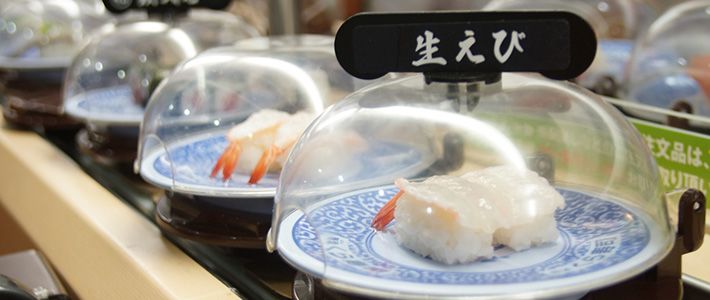
Of Culture Shock and “Shokunin” Culture
Culture Lifestyle- English
- 日本語
- 简体字
- 繁體字
- Français
- Español
- العربية
- Русский
A few years ago, while enjoying a Sunday stroll around Tokyo with a friend and his colleague—both of whom were in Japan on business—the three of us dropped in on a restaurant in Ueno for a sushi lunch. It was the first time either of my companions had visited Japan and their first experience of such serving methods, so I explained how they should take what caught their eye from the dishes that passed before them on the conveyor belt. I also gave a brief rundown on the types of fish that were available before proceeding to order some other types of sushi that I wanted them to try.
A Conveyor Belt of Abuse
But after a short while, the silence was suddenly shattered by a torrent of angry abuse from one of the sushi chefs. “If that’s how you’re going to eat, don’t come here! Clear off now!” I looked over at my friend’s colleague and saw what had so incensed the cook: My compatriot had taken his sushi apart, put all the toppings together on one plate and all the rice on another, and was eating the toppings like sashimi. “When in Rome,” goes the famous saying, so I swiftly apologized and explained the misunderstanding. Yet although this was enough to calm the irate chef down, I was left with a genuine sense of culture shock.
Though we had managed to extricate ourselves from the sticky situation at the sushi restaurant, the event left a deep impression. I had always thought that Japan was a country where the customer is king, but this had shown me another side entirely, one that I hadn’t previously imagined. Could it be that even a king might sometimes have the misfortune to run into a grumpy shop hand? But even taking into account the chef’s underlying feelings, the way he reacted was clearly somewhat over the top. It is remiss of any salesperson to lose sight of the importance of the customer.
The One, True King?
Some time afterward, I found myself watching a legal advice program on TV, in which a panel of four lawyers was asked to respond to a number of real-life situations. One of the cases involved a ramen shop owner who had imposed rather an unusual rule in his establishment: He insisted that all customers must take at least one mouthful of broth before they tucked into their noodles. The program featured an aggrieved customer who had one day flaunted this rule by going straight for the noodles and been promptly chased from the premises by the livid proprietor.
The expert lawyers were evenly split in their eventual verdict, with two ruling in favor of the customer and two siding with the shop’s owner. I must say I found the legal ins and outs of the situation fascinating. But what I found more fascinating still was that a restaurateur should stick so strongly to his convictions, even at the risk of alienating his patrons. Maybe the customer wasn’t king after all.
Pennies vs Principles
After pondering the matter for some time, I reached some conclusions. Individuals like the ramen chef in the program lead a dual existence: both salesman and shokunin, or craftsman. A pure salesman would happily wait hand and foot on his customers to guarantee their satisfaction and continued patronage. The shokunin, on the other hand, takes pride in his creations and demands they be savored in the proper fashion. Beginning with a sip of soup whets the taste buds and best brings out the ramen’s flavor. This is why the shopkeeper imposed his rule—to ensure that his clientele cooperate in fully realizing his culinary masterpieces. Compliant customers will still receive the royal treatment, but those who find themselves unable to adhere to such rules should give his restaurant a wide berth.
Looking at the situation this way makes it much easier to understand the indignation of the sushi chef in Ueno that Sunday afternoon: The shokunin in him simply could not compromise on certain important principles. There must be a lot of craftspeople in Japan today who take a similar stance. Indeed, if anything—more even than service where the customer is king—I feel that this level of pride in one’s work might actually be the national norm.
(Originally written in Chinese.)